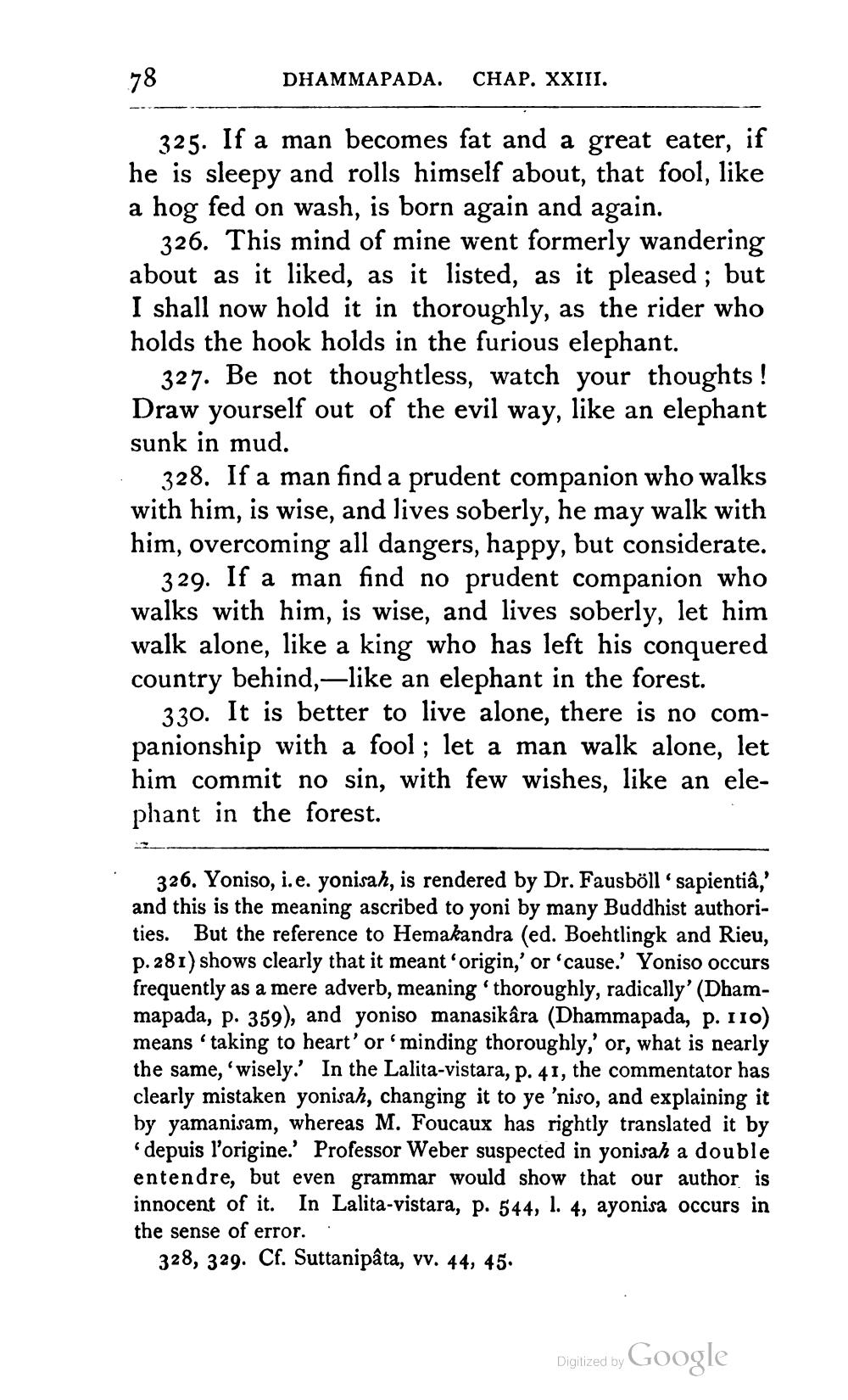________________
78
DHAMMAPADA. CHAP. XXIII.
325. If a man becomes fat and a great eater, if he is sleepy and rolls himself about, that fool, like a hog fed on wash, is born again and again.
326. This mind of mine went formerly wandering about as it liked, as it listed, as it pleased ; but I shall now hold it in thoroughly, as the rider who holds the hook holds in the furious elephant.
327. Be not thoughtless, watch your thoughts ! Draw yourself out of the evil way, like an elephant sunk in mud.
328. If a man find a prudent companion who walks with him, is wise, and lives soberly, he may walk with him, overcoming all dangers, happy, but considerate.
329. If a man find no prudent companion who walks with him, is wise, and lives soberly, let him walk alone, like a king who has left his conquered country behind,—like an elephant in the forest.
330. It is better to live alone, there is no companionship with a fool ; let a man walk alone, let him commit no sin, with few wishes, like an elephant in the forest.
326. Yoniso, i.e. yonisah, is rendered by Dr. Fausböll sapientiâ,' and this is the meaning ascribed to yoni by many Buddhist authorities. But the reference to Hemakandra (ed. Boehtlingk and Rieu, p. 281) shows clearly that it meant 'origin,' or 'cause. Yoniso occurs frequently as a mere adverb, meaning 'thoroughly, radically' (Dhammapada, p. 359), and yoniso manasikâra (Dhammapada, p. 110) means 'taking to heart' or 'minding thoroughly,' or, what is nearly the same, 'wisely.' In the Lalita-vistara, p. 41, the commentator has clearly mistaken yonisah, changing it to ye 'niso, and explaining it by yamanisam, whereas M. Foucaux has rightly translated it by
depuis l'origine.' Professor Weber suspected in yonisah a double entendre, but even grammar would show that our author is innocent of it. In Lalita-vistara, p. 544, 1. 4, ayonisa occurs in the sense of error..
328, 329. Cf. Suttanipâta, v. 44, 45.
Digitized by Google




